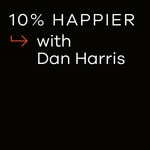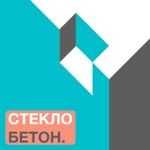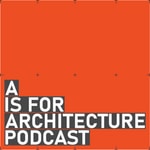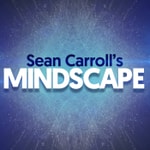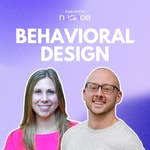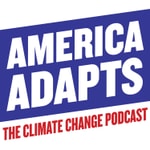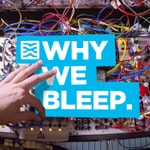Night White Skies – Details, episodes & analysis
Podcast details
Technical and general information from the podcast's RSS feed.
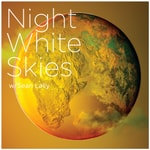
Night White Skies
Sean Lally
Frequency: 1 episode/27d. Total Eps: 108

Recent rankings
Latest chart positions across Apple Podcasts and Spotify rankings.
Apple Podcasts
🇩🇪 Germany - design
08/05/2025#98🇩🇪 Germany - design
07/05/2025#82🇩🇪 Germany - design
06/05/2025#63🇩🇪 Germany - design
05/05/2025#45🇩🇪 Germany - design
04/05/2025#39🇩🇪 Germany - design
03/05/2025#26🇨🇦 Canada - design
08/04/2025#88🇨🇦 Canada - design
07/04/2025#72🇨🇦 Canada - design
06/04/2025#65🇨🇦 Canada - design
05/04/2025#51
Spotify
No recent rankings available
Shared links between episodes and podcasts
Links found in episode descriptions and other podcasts that share them.
See allRSS feed quality and score
Technical evaluation of the podcast's RSS feed quality and structure.
See allScore global : 49%
Publication history
Monthly episode publishing history over the past years.
108 _ THE END w/ Thoughts For Tomorrow
jeudi 22 août 2024 • Duration 16:02
After eight years and over 100 episodes, the Night White Skies podcast is coming to an end. The program began as a look towards architecture’s future knowing that both earth’s environments and our human bodies are now open for design, and that’s where we’ll end.
The program sought to engage a diverse range of perspectives for a better picture of the scenarios currently unfolding. Guests included philosophers Timothy Morton, and Emanuelle Coccia, architectural authors such as Catherine Ingraham, Fred Scharmen, Sylvia Lavin, Rachel Armstrong, designers like Neil Denari, Rania Ghosn and El Hadi Jazairy, researchers in ethics like Sheila Jasanoff, curators including MOMO’s Paola Antonelli, scientists Adam Frank, and Henry T. Greely, as well as science fiction authors James Bradley and Sherryl Vint and many, many more.
A searchable achieve of all episodes is available at www.NightWhiteSkies.com and will remain available for the foreseeable future.
In this final episode, I bring together some reoccurring topics and thoughts over the last eight years of conversations as a means for outlining a course forward, or at the very least, playing out a hunch on work still to be done.
You can find all episodes at www.NightWhiteSkies.com
Thoughts or suggestions, email me at seanlally@gmail.com
107 _ Jeffrey Nesbit / Charles Waldheim_'Technical Lands'
mardi 16 avril 2024 • Duration 43:33
Today’s conversation is with Jeffrey Nesbit and Charles Waldheim about their book Technical Lands.
It was great to have both Jeffrey and Charles back on the program. They’ve both been on here separately but today we’re discussing their new edited book ‘Technical Lands: A Critical Primer’. As they state in the book, designating land as technical is a political act and doing so entails dividing, marginalizing, and rendering portions of the Earth inaccessible. This is land that is often invisible and remote. The range of contributing authors includes architectural historians, landscape architects, anthropologists, sociologists as well as cultural and political geographers. This ‘deep bench’ of disciplinary practices is needed to better understand and draw out how technical lands are defined and maybe even more importantly, demonstrate why it’s necessary to bring them to the foreground of our conversations.
Hope you enjoy the episode and until next time... take care.
Technical Lands: A Critical Primer
Other episodes linked to the topic include Ep 072 Jane Hutton, ‘Reciprocal Landscapes’ , Ep 097 Michael Jakob, ‘Faux Mountains’, Ep 056 Bradley Cantrell, ‘AI and Wildness’ and many others. Try the websites ‘search’ function to find more related episodes.
You can find all episodes at www.NightWhiteSkies.com
Thoughts or suggestions, email me at NWS@seanlally.net
098 _ Parson & Charlesworth _ 'Catalog for the Post-Human'
samedi 1 juillet 2023 • Duration 44:28
This week’s conversation is with Jessica Charlesworth and Tim Parsons and we are talking about their design work which explores some of the key social, ecological, and technological challenges of our time.
Parsons & Charlesworth is an art and design studio that develops tangible worlds as discursive tools for critically appraising urgent issues. Co-founded by Jessica Charlesworth and Tim Parsons, the studio’s investigative, research-driven, speculative approach uses installation, sculpture, designed objects, writing, photography and digital media to explore key social, ecological and technological challenges of our time, including climate change, the future of work, and the ethics of technology. Their current project, Multispecies Inc. manifests the output of a fictional group of ecologists striving to cohabit with other species with the help of advanced technologies.
https://parsonscharlesworth.com/
Ep. 008 _ Gretchen Bakke
lundi 17 octobre 2016 • Duration 01:02:22
Gretchen Bakke is the author of 'The Grid: The Fraying Wires Between Americans and Our Energy Future'. Gretchen Bakke holds a Ph.D. from the University of Chicago in Cultural Anthropology. Her work focuses on the chaos and creativity that emerges during social, cultural, and technological transitions. For the past decade she has been researching and writing about the changing culture of electricity in the United States. In addition to her work on electric power systems she has done research in the Soviet Union, the former Yugoslavia, and in Cuba. She is a former fellow in Wesleyan University’s Science in Society Program, a former Fulbright fellow, and is currently an assistant professor of anthropology at McGill University. Born in Portland, Oregon, Bakke lives in Montreal.
Ep. 007 _ Douglas Pancoast
lundi 10 octobre 2016 • Duration 01:05:07
Douglas Pancoast, was featured in New City Magazine's list Design 50: Who Shapes Chicago 2016. New City featured Douglas for his project, The Array of Things, which will be installed in April, 2016. Awarded a $3.1 million grant by the National Science Foundation, the project will create a network of interactive, modular sensor boxes that will be installed around Chicago to collect real-time data on the city’s environment, infrastructure, and activity for research and public use. Douglas Pancoast is an Associate Professor, Architecture, Interior Architecture, and Designed Objects (2002). BArch, 1991, University of Kansas School of Architecture and Urban Design; MArch, 1995, Cranbrook Academy of Art. Exhibitions: National Building Museum, Washington, D.C.; Architectural League of New York; Cranbrook Kingswood Gallery. Publications: Princeton Architectural Press; Oculus; Architecture; The Architectural Review. Awards: Architectural League of New York Young Architects Forum Competition; Charles E. Peterson Prize.
Ep. 006 _ Peter Lloyd Jones
lundi 26 septembre 2016 • Duration 01:20:58
Peter Lloyd Jones is a hybrid innovator, scientist and academic whose initial discoveries have uncovered fundamental mechanisms in stem cell biology, embryogenesis and human disease, including breast cancer and lung development. Jones’s work actively seeks and finds new solutions to complex problems via extreme collaborations within seemingly unrelated fields, including fashion, industrial, textile and architectural design. Following completion of his Ph.D. at Cambridge University in Genetics and Pathology, Jones conducted post-doctoral fellowships in 3-D Biology with Drs. Mina Bissell and Marlene Rabinovitch at UC Berkeley and The University of Toronto, respectively. Currently, he is the first Associate Dean of Emergent Design and Creative Technologies at The Sidney Kimmel Medical College of Thomas Jefferson University (TJU; Est1825), where in 2013, he founded MEDstudio@JEFF; a research and education space focused on discovering new and dignified solutions in health care using approaches rooted in human-centered design. In 2014, MEDstudio@JEFF partnered with DesignPhiladelphia and Friends of The Philadelphia Rail Park to explore how design could be deployed to benefit heath at an urban scale. Prior to this, Jones was a tenured Associate Professor of Pathology at The University of Pennsylvania, where he established a national center for the study of pulmonary hypertension, and co-founded the Sabin+Jones LabStudio with architectural researcher Jenny E. Sabin, now at Cornell. In addition to 100+ scientific pubs and numerous installations across the globe, Jones’ ideas on contemporary relationships between biology and design have been featured in the catalog accompanying the Gen(H)ome exhibition at the MAK Center in L.A., and in an issue of 306090 dedicated to models. Recently, Jones was elected into National Academy of Inventors. nominated for Scientist of the Year at The Philly Geek Awards, and in 2016 he made his one and onlyTV acting debut as a master-spy on the Emmy award-winning National Geographic science series, Brain Games. Also in 2016, he collaborated once more as curator and designer with Jenny Sabin Studio (which acts as lead design) of THE BEACON for Health and Wellness futures, a responsive ecosystem that probes the interactions that might exist between medicine and design at their outer limits. THE BEACON debuts for 10 days on Oct 06 during DesignPhiladelphia 2016 at Lubert Plaza/TJU in Philadelphia with a focus on reimagining urban health via the future Philadelphia RAIL PARK.
Ep. 005 _ Mitchell Joachim
lundi 19 septembre 2016 • Duration 57:43
Mitchell Joachim, Ph.D., Assoc. AIA - is the Co-Founder of Terreform ONE and an Associate Professor of Practice at NYU. Formerly, he was an architect at the offices of Frank Gehry and I.M. Pei. He as been awarded a Fulbright grant and fellowships with TED, Moshe Safdie, and Martin Society for Sustainability. He was chosen by Wired magazine for "The Smart List” and selected by Rolling Stone for “The 100 People Who Are Changing America”. Mitchell won many honors including; AIA New York Urban Design Merit Award, 1st Place International Architecture Award, Victor Papanek Social Design Award, Zumtobel Group Award for Sustainability, History Channel Infiniti Award for City of the Future, and Time magazine’s Best Invention with MIT Smart Cities Car. He's featured as “The NOW 99” in Dwell magazine and “50 Under 50 Innovators of the 21st Century" by Images Publishers. He co-authored the books, “Super Cells: Building with Biology” and “Global Design: Elsewhere Envisioned”. His design work has been exhibited at MoMA and the Venice Biennale. He earned: PhD at Massachusetts Institute of Technology, MAUD Harvard University, MArch Columbia University.
Ep. 004 _ Ed Finn
lundi 12 septembre 2016 • Duration 56:01
Ed Finn is the founding director of the Center for Science and the Imagination at Arizona State University, where he is an assistant professor with a joint appointment in the School of Arts, Media and Engineering and the Department of English. Ed’s research and teaching explore digital narratives, contemporary culture and the intersection of the humanities, arts and sciences. He is the author of What Algorithms Want: Imagination in the Age of Computing (MIT Press, Spring 2017) and the co-editor of Frankenstein: Annotated for Scientists, Engineers and Creators of All Kinds (MIT Press, Spring 2017) and Hieroglyph: Stories and Visions for a Better Future(William Morrow, September 2014). He completed his PhD in English and American literature at Stanford University in 2011. Before graduate school Ed worked as a journalist at Time, Slate and Popular Science. He earned his bachelor’s degree at Princeton University in 2002 with a Comparative Literature major and certificates in Applications of Computing, Creative Writing and European Cultural Studies.
Ep. 003 _ Geoffrey Thün & Kathy Velikov
lundi 5 septembre 2016 • Duration 44:18
Geoffrey Thün and Kathy Velikov are Associate Professors at the University of Michigan Tuabman College of Architecture and Urban Planning, and founding principals of the design-research practice RVTR. Their work and writing explores the agency of architecture and urban design within the context of dynamic ecological systems, infrastructures, energies, materially and technologically mediated environments, and emerging social organizations. Their body of work in “responsive envelopes” has been developing composite material systems that operate as thick, sensing skins that are integrated with sensing, intelligence, kinetic action, and interaction capabilities. This work has been published in Leonardo, IJAC, JAE, eVolo, [bracket] Goes Soft, and featured in in Hypernatural: Architecture’s New Relationship with Nature by Blaine Brownell and Marc Swackhamer, Paradigms in Computing by David Gerber and Mariana Ibanez, Performative Materials in Architecture by Rashida Ng and Sneha Patel, and High Performance Homes by Franca Trubiano. Most recently, their “Infundibuliforms: Kinetic Tensile Surface Environments” project received a 2016 R+D Awards honorable mention from Architect Magazine. Thün and Velikov also undertake work at the urban scale of infrastructures and territories. They have recently co-authored Infra Eco Logi Urbanism (Park Books, 2015), and were collaborators on EXTRACTION, the Canadian Pavilion exhibition at the 2016 Venice Architecture Biennale.
Ep. 002_Timothy Morton
lundi 29 août 2016 • Duration 01:37:43
Timothy Morton is Rita Shea Guffey Chair in English at Rice University. He is the author of Dark Ecology: For a Logic of Future Coexistence, Nothing: Three Inquiries in Buddhism and Critical Theory (Chicago, forthcoming), Hyperobjects: Philosophy and Ecology after the End of the World (Minnesota, 2013), Realist Magic: Objects, Ontology, Causality (Open Humanities, 2013), The Ecological Thought (Harvard, 2010), Ecology without Nature (Harvard, 2007), seven other books and 120 essays on philosophy, ecology, literature, music, art, design and food. He blogs regularly at http://www.ecologywithoutnature.blogspot.com.
